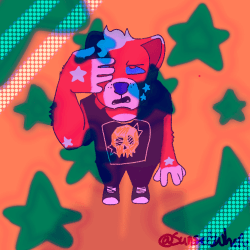I found this module quite confusing but enjoyable.
Researching our chosen academic article, ‘The Disappearance of Disney Animated Propaganda: A globalisation perspective’
The article covers why Disney started to make propaganda around WW2, why it was so effective, how globalisation has hindered the efficiency of Western animated propaganda, and why Disney never made animated propaganda for the Cold War, the Korean War, or around 9/11.
I found this article so interesting and I also loved the journal itself, ‘Animation and Interdisciplinary Journal.’ There were so many interesting articles to choose from but eventually we all landed on ‘The Disappearance of Disney Animated Propaganda: A Globalisation Perspective.’. We chose this one because we were all interested in the historical aspect of things—I was especially and I had a great time researching.
It surprised me how difficult it was to understand the author at certain points; not even the words they were using but how they structured their arguments also was slightly difficult to understand. A lot of the time, the way they wrote certain arguments made me think that what they were presenting was factual when, in fact, it was simply their opinion.
At one point, the author, Gerard C. Raiti, states that:
“If the US government had offered the Disney
Studios money during the Korean War or the Cold War, it is likely that
a series of cartoon propaganda would exist for those wars as well. The
government understood that animation facilitates propaganda.”
There is some evidence to back this up for the Cold War. I found researching this very interesting, actually, because I never realised how widespread the ‘Red Scare’ was in America. I thought it more so affected working-class Americans, so it was interesting to see Walt Disney’s reaction.
Walt Disney actually ratted out some of his own employees to a government department called ‘HUAC,’ which stands for House of Un-American Activities Committee, which was established around the time of the Cold War to root out communists in the film industry. Some of the names Disney gave forward were workers trying to unionise but in a funny coincidence, a lot of the people he accused had been or were members of the Communist Party.
I also found this very interesting interview of Disney on YouTube during this hearing with HUAC.
I was going to include this video in the presentation but I felt like it would take up too much time in the presentation and I wanted to try to be as quick as possible so that everyone would be able to present their slides.
Something I struggled with a lot while researching and preparing my slides was that I felt like what I was researching or typing out wasn’t academic enough or that at certain points in my research I felt that I was analysing the subject the article was talking about rather than the article and this affected how I prepared my slides.
Usually I like my slides to be quite bare and with a few eye-catching graphics but because of the historical section I was covering in the article, I felt that I needed to add more information on my slides to provide context to what I was going to read out but I feel now, looking back, that my presentation slides were too wordy and I also think I should have added a few more graphics into the presentation as it was quite bare.
I also now think that if I am to present work again, I would use a different software to make the presentation. I know a lot of people in class use Canva and I think it makes for much more aesthetically pleasing presentations and I would like to use it going forward.
To add to my hindsight, I wish I had dug deeper in my research. I really found the fact that Disney was getting closer to the government to seemingly try to secure more government very interesting and wish I had followed that interest into WHY the government didn’t contract Disney for more work, considering Disney’s WW2 propaganda was extremely effective and popular among American citizens and abroad.
I also think I should have made more of an effort to communicate with the group; I think I should have suggested a group call to time our presentation or put forward the idea of staying after class to rehearse our presentation but I was too nervous at the time to communicate this.
Overall, I think that I did well but i definitely could have done better. I regret not reading the full article another time to make sure I fully digested all the information in it because I don’t think I fully understood how all the different sections linked together.
I also think I should have timed myself speaking because I think I went over the recommended 2-minute guidance per person.
However, I also thought I did some things well;
I thought the way I took notes was good, as I was reading my sections; I jotted down anything historical with exact references to specific events for example, the ‘Cold War,’ anything about Disney himself, and statements that seemed more opinionated than factual and by taking down notes this way, it allowed me to chase up information online a bit more clearly.
I think something from this module I could develop on is my understanding of academic writings and language, as I found myself reading some paragraphs over and over because I couldn’t grasp what the author was trying to put across.
